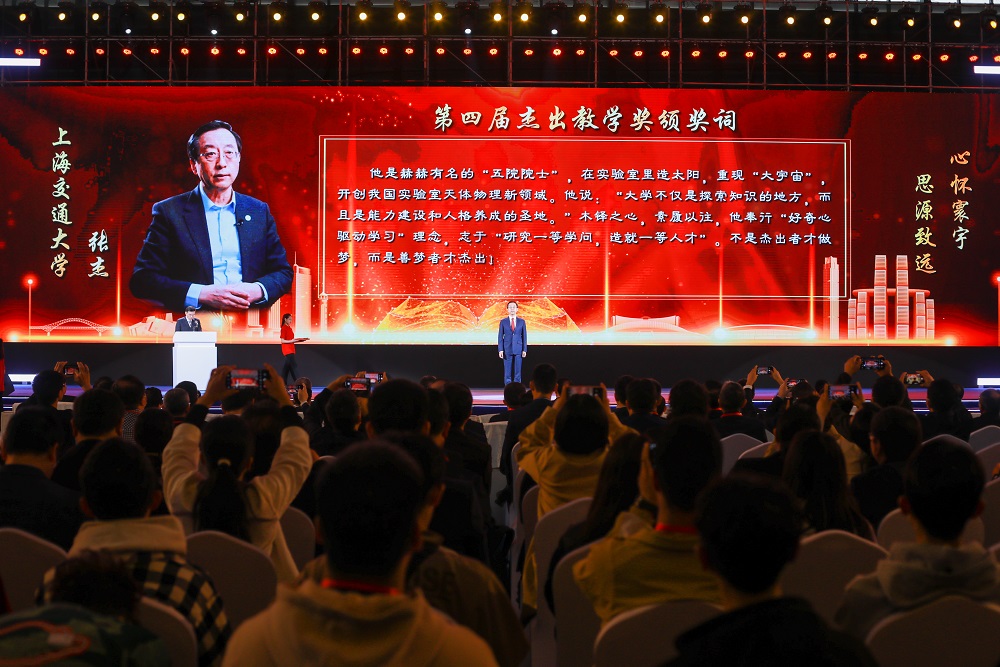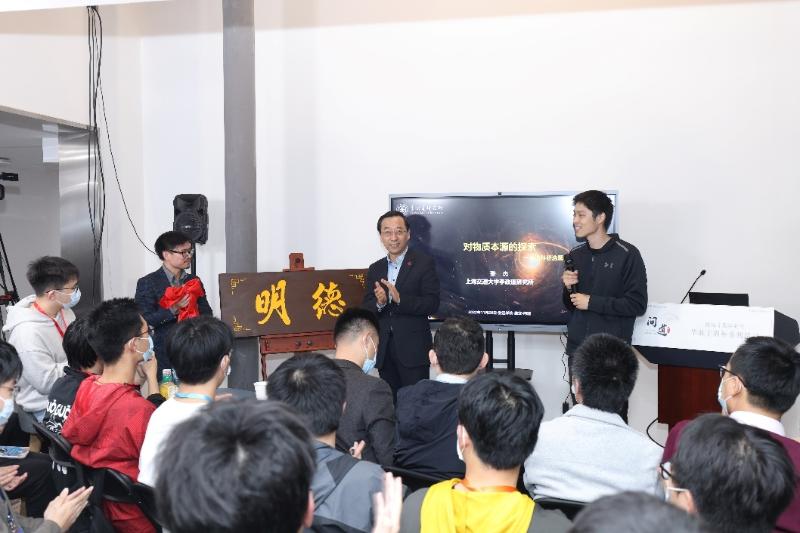Recently, the fourth Teaching Master Award, Outstanding Teaching Award, and Innovation and Entrepreneurship Talent Award ceremony, supported by the Ministry of Education and initiated by the China Teacher Development Foundation, was held in Chongqing.
Academician Zhang Jie, a Member of the Chinese Academy of Sciences, Honorary Dean of the Zhiyuan College at Shanghai Jiao Tong University, and Director of the Li Zhengdao Research Institute, was awarded the Outstanding Teaching Award. He is the first Shanghai Jiao Tong University teacher to receive this honor.

The "Outstanding Teaching Award," one of the "Three Outstanding Teaching Awards," primarily recognizes university teachers who have made outstanding contributions in talent cultivation, strategic talent development in areas of national importance, global excellence in teaching influence, and who are dedicated to teaching on the front line. The establishment of this award aims to guide university teachers to focus on teaching and educating students and become exemplary educators. Since its launch in 2019, the award has been given annually, and in the first three editions, a total of 22 teachers were honored, creating a widespread and enthusiastic impact in society.
During his tenure as the President of Shanghai Jiao Tong University from 2006 to 2017, Zhang Jie established Zhiyuan College as a special zone for nurturing top innovative talents and personally served as the Dean. He invited talented individuals from all over the world and initiated a general education reform centered around the four science clusters, in line with the needs of the new technological revolution era. In Zhiyuan College, he successfully put into practice his educational philosophy of "attracting a group of highly innovative teachers and a group of students with great innovation potential, gathering them together, stimulating their thinking through mutual collisions, and inspiring their creativity, thereby cultivating lifelong innovative capabilities in students."
Up to now, Zhiyuan College has nurtured 1,926 graduates from eleven cohorts, with 93% of them pursuing further studies at domestic and foreign universities. Approximately 58% of the graduates in fundamental disciplines directly pursue doctoral degrees, and 34 alumni hold teaching positions at world-class universities, gradually making their mark on the international academic stage.

Zhang Jie believes that the current mode of knowledge construction is undergoing significant changes, with increasing cross-disciplinary integration and profound transformations in scientific research paradigms. Science is no longer presented in singular disciplines but rather in a cross-fertilized and comprehensive manner, where top innovative talents are required to address and solve problems that encompass various domains such as nature, society, politics, and economy. By mastering the scientific thinking mode, students can engage in high-quality study of any course, pursue research in their respective fields, and derive benefits from learning in other knowledge domains and in their daily lives.
Under Zhang Jie's strong impetus, Zhiyuan College has undertaken comprehensive reforms in general education in recent years, constructing a foundational and general curriculum system that encompasses the four major knowledge clusters of material science, data science, life science, and humanities.
As a pilot initiative, the "One Science" integrated cultivation program has been implemented in the field of biomedical science, systematically delineating the structure of knowledge correlations, breaking down disciplinary boundaries, guiding students to explore problems using scientific thinking methods, fostering their abilities for independent thinking and judgment, enhancing their sense of social responsibility, and cultivating their identity as scientists, thus maximizing their potential for development.
